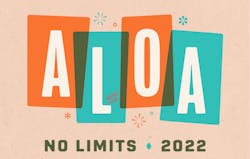When we’re in grade school, a question is asked: What do you want to be when you grow up? Typical answers include fireman, policeman, astronaut. I’d guess that most children wouldn’t choose locksmith as their vocation.
I grew up going on service calls with my dad. Dad always worked, and the only way I could spend time with him was to become his apprentice. My summer-school classroom was a service van.
The first time my dad let me take apart a lock cylinder, I dropped it on the floor of the van. The follower flew out, and springs and pins went in every direction. In shock and horror, I asked my dad to help me to rebuild the lock cylinder. He said, “You have seen me rebuild lock cylinders many times. You figure it out.”
At the time, I didn’t appreciate my father’s teaching methods, but later in life, I did. I had learned to use critical thinking.
Everyone becomes exposed to the trade in diverse ways and receives training from various sources. Back in the day, like most apprenticeships, our trade was passed from person to person. Proprietary knowledge wasn’t shared with the public.
That changed with the internet and YouTube. Much coveted knowledge is simply given away. In addition to that, specialized tools are easily attainable to anyone for a price. The internet even has spawned lockpicking as a hobby. I never thought I’d see the day that would happen.
Training & Certification
So, with so much knowledge available, it’s easy to attain skills necessary to becoming a locksmith, but that doesn’t necessarily make someone a locksmith, let alone a good one. That requires hours of practice and work.
How one attains that still varies. Some have apprenticed and others have taught themselves. Still others have taken classes, and many classes are online.
As you advance in your career, you might decide to become certified.
Yes, we know you have a lot of experience, but how can you prove it to your customers and peers? Many states require locksmiths to become licensed, and some have opted to use association testing as part of their licensing process. Think of certification as advanced licensing, also applicable for states that don’t license.
Certification is a measuring stick. It provides standards for an industry that’s responsible for life safety and property security. Testing for certification is an instrument for proving ability and trade knowledge.
Granted, I have several certifications, one of which is as an ALOA ACE instructor who develops curriculum for certification. I might be biased, but think about this for a moment: Does certification raise public opinion and provide more legitimacy to locksmithing? Do you believe that scammers would make the effort to become certified? What are the things that separate the good guys from the bad guys? Ethical business practices are certainly part of the discussion.
For years, I owned and ran a mobile locksmith service company. I paid my association dues but didn’t have time to go to conferences and didn’t seek certification. Did that make me a bad business owner? Certainly not, but being part of an association and having certification “levels you up.” It wasn’t until I sold my business and someone paid for me to go to the conferences that I became interested in becoming a Certified Registered Locksmith (CRL), my first designation. It was the right move for my career.
What Certification Involves
Recently, I took a class to become a Certified Fire Door Inspector from ALOA. I took this class on Zoom for two consecutive evenings of three hours each. Our instructor, Tom Foxwell, took us through the curriculum and book that he developed, covering NFPA 80 and 101. Knowledge of those two codes and standards is necessary to become certified as a fire door inspector.
In addition to the book work, every student had to give a presentation. Students presented reports on two fire doors that they had inspected. Inspection forms and pictures were part of the presentation. After the presentations, the students were tested. The AFDI certification is made up of the door-inspection presentations and a test score, and I’m pleased to report that I passed both.
Each certification’s requirements are different, and the tests come in at a variety of prices. If you’re interested in taking classes for certification, I’d recommend joining the association that provides the training. Members receive discounted rates on classes and tests and other benefits, such as bonding.
All this information is online. While you search webpages for associations, you can look up various certifications and what’s necessary to obtain them. Below are a couple of examples.
ALOA Certification
ALOA offers several types of certification and multiple levels in some cases, starting with ALOA Fundamental Locksmith (AFL). To earn the AFL designation, you must complete ALOA’s Six-Day Basic Locksmithing Course, which is offered in Dallas or at the annual ALOA convention, and an after-class examination. Generally, an AFL has enough locksmithing knowledge to function as an apprentice locksmith, but this isn’t a path for advanced certification levels. ALOA has three such levels:
Certified Registered Locksmith (CRL) A CRL has passed the 10 mandatory class categories as well as at least two electives. A CRL has a good working knowledge of general locksmithing.
Certified Professional Locksmith (CPL) A CPL has earned the CRL designation and passed an additional 12 elective categories. A CPL has an advanced knowledge of general locksmithing and of many specialized areas.
Certified Master Locksmith (CML) A CML has demonstrated proficiency in 90% of the available categories of the Proficiency Registration Program (PRP). A CML has advanced knowledge of most areas of locksmithing and electronic security.
In addition, ALOA offers two levels of certification for safe technicians, one as an automotive locksmith and one as an instructor.
As for testing, think of the PRP as a bank of 37 exams that contain 25 questions each. For example, to gain the first level of certification, CRL, you must pass the L-00 Mandatory Exam, which consists of the top 10 basic categories in the bank and two more electives.
The L-00 has a lot of terminology, so one thing you’ll find immensely helpful is to study vocabulary. The rest of L-00 is general knowledge. Some questions can pertain to brand-specific topics. If a prep class or study guide is available, I’d recommend taking it.
If you take the electives to add to your certification qualification, sign up for the test after the class so the information is fresh. Understand that not all questions might have been addressed during the class. Few instructors teach to the test, so you have to do your homework and perhaps take your best guess to answer some of the test questions.
One more piece of advice that’s applicable to all testing for any certification: Statistically, lower room temperatures are supposed to yield higher test scores. I’ve noticed that temperatures in the big test room at the ALOA conference are freezing cold, so bring a jacket or sweater.
ILA Certification
The Institutional Locksmiths of America (ILA) offers a similar set of certification programs for institutional locksmiths. However, advanced levels require a specific number of years of experience as well as a passing test score.
To earn the Certified Institutional Locksmith (CIL) designation, the participant must pass an exam of about 250 questions that measure a participant’s knowledge of general locksmithing. Some subject areas include lockset functions and finishes, lock-bypass methods and life-safety codes, among other categories. There are no “brand specific” questions on the CIL exam.
To earn the Certified Journeyman Institutional Locksmith (CJIL) designation, the participant must pass an “advanced” exam and elective exams that cover manufacturer-specific subjects in depth, as well as institutional environment issues, such as those at a hospital or university. These exams reflect the security products and occupational circumstances that institutional locksmiths encounter on a daily basis.
To earn the Certified Master Institutional Locksmith (CMIL) designation, the participant must pass additional elective exams.
There are other associations and designations. They have created portals into the ever-changing world of physical security. No matter which training or certification you pursue, one thing remains constant — purpose. Our purpose is to protect lives and property, and certification shows that you’ve proven to be able to do both.
Steve Fryman, CRL, CAI, CISM, AFDI, is the key compliance manager at Florida State University. He can be emailed at [email protected].
Steve Fryman, CRL, CAI, CISM, AFDI
Steve Fryman, CRL, CAI, CISM, AFDI, is the key compliance manager at Florida State University. He can be emailed at [email protected].







